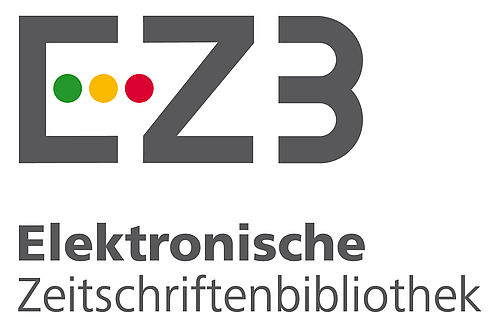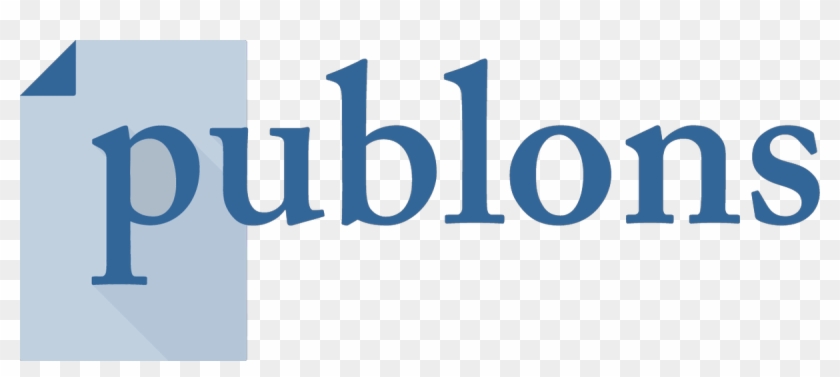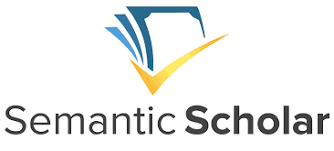Abstract
References
- 1. Adegoke, A.A., Adeboye-Tayo, B.C., 2009. Phytochemical composition and antimicrobial effects of Corchorous olitorius leaf extracts on four bacterial isolates. Journal of Medicinal Plants Research, 3(3), 155-159.
- 2. Azuma, K., Nakayama, M., Koshioka, M., Ippoushi, K., Yamaguchi, Y., Kohata, K. et al., 1999. Phenolic Antioxidants from the Leaves of Corchorus olitorius L. Journal of Agricultural and Food Chemistry, 47, 10, 3963-3966. DOI 10.1021/jf990347p
- 3. Becer, E., Soykut, G., Kabadayı, H., Mammadov, E., Çalış, İ., Vatansever, S. 2020. Obtaining Stem Cell Spheroids from Foreskin Tissue and the Effect of Corchorus olitorius L. on Spheroid Proliferation. Turkish Journal of Phamaceutical Sciences. DOI: 10.4274/tjps.galenos.2019.05658 [article ahead of printing]
- 4. Bhagwat, S., Haytowitz, D.B., Holden J.M. 2011. USDA Database for the Flavonoid Content of Selected Foods (Report No: 3). Beltsville Human Nutrition Research Center: United States Department of Agriculture.
- 5. Boye, A., Barku, V.Y.A., Amoateng, P., Mbroh, L.A. 2014. Anti-nociceptive and antioxidant activities of an aqueous leaf extract of Corchorus olitorius L. (Tiliaceae). International Journal of Biological and Chemical Sciences, 8(6), 2395-2406. DOI 10.4314/ijbcs.v8i6.3
- 6. Dewanjee, S., Sahu, R., Karmakar, S. Gangopadhyay, M., 2013. Toxic effects of lead exposure in Wistar rats: Involvement of oxidative stress and the beneficial role of edible jute (Corchorus olitorius) leaves. Food Chemical Toxicology, 55, 78-91. DOI 10.1016/j.fct.2012.12.040
- 7. Duke, J.A. 1983 Handbook of Energy Crops; Corchorus olitorus L. Accessed online at 23.11.2015 https://hort.purdue.edu/newcrop/duke_energy/Corchorus_olitorius.html
- 8. Handoussa, H., Hanafi, R., Eddiasty, I., El-Gendy, M., El-Khatip, A., Linscheid, M. et al. 2013. Anti-inflammatory and cytotoxic activities of dietary phenolics isolated from Corchorus olitorius and Vitis vinifera. Journal of Functional Foods, 5, 1204-1216. DOI 10.1016/j.jff.2013.04.003
- 9. İşeri, Ö.D., Yurtcu, E., Sahin, F.İ., Mehmet, H., 2013. Corchorus olitorius (jute) extract induced cytotoxicity and genotoxicity on human multiple myeloma cells (ARH-77). Pharmaceutical Biology, 51(6), 766-770. DOI 10.3109/13880209.2013.765897
- 10. Kasiri, N., Rahmati, M., Ahmedi, L., Eskandari, N., Motedayyen, H. 2019. Therapeutic potential of quercetin on human breast cancer in different dimensions. Inflammopharmacology. DOI 10.1007/s10787-019-00660-y. [Epub ahead of print]
- 11. Li, G.J., Huang, S.Y., Wu, M.Y., Chen, Y.C., Tsang, S.F., Chyuan, J.H., et al. 2012. Induction of Apoptosis by Ethanolic Extract of Corchorus olitorius Leaf in Human Hepatocellular Carcinoma (HepG2) Cells via a Mitochondria-Dependent Pathway. Molecules, 17, 9348-9360. DOI 10.3390/molecules17089348.
- 12. Maggiolini, M., Bonofiglio, D., Marsico, S., Panno, M.L., Bruno Cenni, B., Picard, D., And`O, S., 2001. Estrogen Receptor α Mediates the Proliferative but Not the Cytotoxic Dose-Dependent Effects of Two Major Phytoestrogens on Human Breast Cancer Cells. Molecular Pharmacology, 60(3), 595-602.
- 13. Miodini, P., Fioravanti L., Di Fronzo G., Cappelletti V., 1999. The two phyto-oestrogens genistein and quercetin exert different effects on oestrogen receptor function. British Journal of Cancer, 80(8), 1150-1155. DOI 10.1038/sj.bjc.6690479
- 14. Pal, D.K., Mandal, M., Senthilkumar, G.P., Padhiari, A, 2006. Antibacterial activity of Cuscuta reflexa stem and Corchorus olitorius seed. Fitoterapia, 77, 589-591. DOI 10.1016/j.fitote.2006.06.015
- 15. Singh, B., Mense, S.M., Bhat, N.K., Putty, S., Guthiel, W.A., Remotti, F., Bhat, H.K., 2010. Dietary Quercetin Exacerbates the Development of Estrogen-Induced Breast Tumors in Female ACI Rats. Toxicology and Applied Pharmacology, 247(2), 83–90. DOI 10.1016/j.taap.2010.06.011
- 16. Soykut, G., Becer, E., Calis, I., Yucecan, S., Vatansever, S. 2018. Apoptotic effects of Corchorus olitorius L. leaf extracts in colon adenocarcinoma cell lines. Progress in Nutrition, 20, 4, 689-698. DOI 0.23751/pn.v20i4.6892
- 17. Sørensen, B.G., 2018. Quercetin - creating an estrogenic response. University of Copenhagen. Accessed online at 27.11.2019 https://natoxaq.ku.dk/toxin-of-the-week/quercetin/
- 18. Türkomp. 2018. Ulusal Gıda Kompozisyon Veri Tabanı, C Vitamini. Accesed online at 17.06.2018. http://www.turkomp.gov.tr/component_result-c-vitamini-32
- 19. WCRF, World Cancer Research Fund/American Institute for Cancer Research (2018). Diet, Nutrition, Physical Activity and Breast Cancer: A Global Perspective (Report No: 2018 revised). Dietandcancerreport.org: World Cancer Research Fund/American Institute for Cancer Research.
- 20. WHO World Health Organization. 2019. Breast Globacan 2018. Accessed online at 27.11.2019 https://gco.iarc.fr/today/data/factsheets/cancers/20-Breast-fact-sheet.pdf
- 21. Wu, Q., Needs, P.W., Lu, Y., Kroon, P.A., Daoyuan Rena, D., Yang, X., 2018. Different antitumor effects of quercetin, quercetin-3’-sulfate and quercetin-3-glucuronide in human breast cancer MCF-7 cells. Food & Function, 9, 1736–1746. DOI 10.1039/c7fo01964e
The Effect of Corchorus olitorius L. Extract on Viability of Breast Cancer Cells: A friend or a foe?
Abstract
This Corchorus olitorius L. is
known to be a medicinal plant widely consumed in the Eastern Mediterranean
region and has anti-bacterial, anti-inflammatory and anti-cancer properties.
Breast cancer has one of the highest mortality rates among all cancers.
Therefore, the main aim of the study is to evaluate the effectiveness of C. olitorius plant on viability of
estrogen receptor (ER) positive breast cancer cell line, MCF-7. C. olitorius leaves first extracted with
ethanol, then LC-MS/MS analysis was done for identification of phytochemicals.
MTT assay was used for assessment of cell viability of MCF-7 cells. Cells were
treated with C. olitorius extracts at
five concentrations (5, 10, 20, 50, 100 µg/ml) and four different incubation
periods (24, 48, 72, 96 h). LC-MS/MS analysis identified seven phytochemicals
in the extract, mainly quercetin and caffeoylquinic acid derivatives. MTT
results showed that the extract was only slightly effective in terms of
reduction of cell viability at 50 and 100 µg/ml doses which were incubated for
24 and 48 h. Lower concentration doses did not show any effect in cell
viability of MCF-7 cells. Longer incubation periods tend to increase cell
viability of breast cancer cells. Quercetin identified within the extract might interfere with ER and promote MCF-7 cell
proliferation. Therefore, in ER positive breast adenocarcinoma, quercetin
intake and doses should carefully be monitored. More studies regarding the
relationship between C. olitorius,
quercetin and breast cancer should be done for further clarification of the
topic.
Thanks
The authors are thankful to Experimental Health Research Center of Health Sciences and Pharmacognosy laboratories of Near East University for their valuable support during the study.
References
- 1. Adegoke, A.A., Adeboye-Tayo, B.C., 2009. Phytochemical composition and antimicrobial effects of Corchorous olitorius leaf extracts on four bacterial isolates. Journal of Medicinal Plants Research, 3(3), 155-159.
- 2. Azuma, K., Nakayama, M., Koshioka, M., Ippoushi, K., Yamaguchi, Y., Kohata, K. et al., 1999. Phenolic Antioxidants from the Leaves of Corchorus olitorius L. Journal of Agricultural and Food Chemistry, 47, 10, 3963-3966. DOI 10.1021/jf990347p
- 3. Becer, E., Soykut, G., Kabadayı, H., Mammadov, E., Çalış, İ., Vatansever, S. 2020. Obtaining Stem Cell Spheroids from Foreskin Tissue and the Effect of Corchorus olitorius L. on Spheroid Proliferation. Turkish Journal of Phamaceutical Sciences. DOI: 10.4274/tjps.galenos.2019.05658 [article ahead of printing]
- 4. Bhagwat, S., Haytowitz, D.B., Holden J.M. 2011. USDA Database for the Flavonoid Content of Selected Foods (Report No: 3). Beltsville Human Nutrition Research Center: United States Department of Agriculture.
- 5. Boye, A., Barku, V.Y.A., Amoateng, P., Mbroh, L.A. 2014. Anti-nociceptive and antioxidant activities of an aqueous leaf extract of Corchorus olitorius L. (Tiliaceae). International Journal of Biological and Chemical Sciences, 8(6), 2395-2406. DOI 10.4314/ijbcs.v8i6.3
- 6. Dewanjee, S., Sahu, R., Karmakar, S. Gangopadhyay, M., 2013. Toxic effects of lead exposure in Wistar rats: Involvement of oxidative stress and the beneficial role of edible jute (Corchorus olitorius) leaves. Food Chemical Toxicology, 55, 78-91. DOI 10.1016/j.fct.2012.12.040
- 7. Duke, J.A. 1983 Handbook of Energy Crops; Corchorus olitorus L. Accessed online at 23.11.2015 https://hort.purdue.edu/newcrop/duke_energy/Corchorus_olitorius.html
- 8. Handoussa, H., Hanafi, R., Eddiasty, I., El-Gendy, M., El-Khatip, A., Linscheid, M. et al. 2013. Anti-inflammatory and cytotoxic activities of dietary phenolics isolated from Corchorus olitorius and Vitis vinifera. Journal of Functional Foods, 5, 1204-1216. DOI 10.1016/j.jff.2013.04.003
- 9. İşeri, Ö.D., Yurtcu, E., Sahin, F.İ., Mehmet, H., 2013. Corchorus olitorius (jute) extract induced cytotoxicity and genotoxicity on human multiple myeloma cells (ARH-77). Pharmaceutical Biology, 51(6), 766-770. DOI 10.3109/13880209.2013.765897
- 10. Kasiri, N., Rahmati, M., Ahmedi, L., Eskandari, N., Motedayyen, H. 2019. Therapeutic potential of quercetin on human breast cancer in different dimensions. Inflammopharmacology. DOI 10.1007/s10787-019-00660-y. [Epub ahead of print]
- 11. Li, G.J., Huang, S.Y., Wu, M.Y., Chen, Y.C., Tsang, S.F., Chyuan, J.H., et al. 2012. Induction of Apoptosis by Ethanolic Extract of Corchorus olitorius Leaf in Human Hepatocellular Carcinoma (HepG2) Cells via a Mitochondria-Dependent Pathway. Molecules, 17, 9348-9360. DOI 10.3390/molecules17089348.
- 12. Maggiolini, M., Bonofiglio, D., Marsico, S., Panno, M.L., Bruno Cenni, B., Picard, D., And`O, S., 2001. Estrogen Receptor α Mediates the Proliferative but Not the Cytotoxic Dose-Dependent Effects of Two Major Phytoestrogens on Human Breast Cancer Cells. Molecular Pharmacology, 60(3), 595-602.
- 13. Miodini, P., Fioravanti L., Di Fronzo G., Cappelletti V., 1999. The two phyto-oestrogens genistein and quercetin exert different effects on oestrogen receptor function. British Journal of Cancer, 80(8), 1150-1155. DOI 10.1038/sj.bjc.6690479
- 14. Pal, D.K., Mandal, M., Senthilkumar, G.P., Padhiari, A, 2006. Antibacterial activity of Cuscuta reflexa stem and Corchorus olitorius seed. Fitoterapia, 77, 589-591. DOI 10.1016/j.fitote.2006.06.015
- 15. Singh, B., Mense, S.M., Bhat, N.K., Putty, S., Guthiel, W.A., Remotti, F., Bhat, H.K., 2010. Dietary Quercetin Exacerbates the Development of Estrogen-Induced Breast Tumors in Female ACI Rats. Toxicology and Applied Pharmacology, 247(2), 83–90. DOI 10.1016/j.taap.2010.06.011
- 16. Soykut, G., Becer, E., Calis, I., Yucecan, S., Vatansever, S. 2018. Apoptotic effects of Corchorus olitorius L. leaf extracts in colon adenocarcinoma cell lines. Progress in Nutrition, 20, 4, 689-698. DOI 0.23751/pn.v20i4.6892
- 17. Sørensen, B.G., 2018. Quercetin - creating an estrogenic response. University of Copenhagen. Accessed online at 27.11.2019 https://natoxaq.ku.dk/toxin-of-the-week/quercetin/
- 18. Türkomp. 2018. Ulusal Gıda Kompozisyon Veri Tabanı, C Vitamini. Accesed online at 17.06.2018. http://www.turkomp.gov.tr/component_result-c-vitamini-32
- 19. WCRF, World Cancer Research Fund/American Institute for Cancer Research (2018). Diet, Nutrition, Physical Activity and Breast Cancer: A Global Perspective (Report No: 2018 revised). Dietandcancerreport.org: World Cancer Research Fund/American Institute for Cancer Research.
- 20. WHO World Health Organization. 2019. Breast Globacan 2018. Accessed online at 27.11.2019 https://gco.iarc.fr/today/data/factsheets/cancers/20-Breast-fact-sheet.pdf
- 21. Wu, Q., Needs, P.W., Lu, Y., Kroon, P.A., Daoyuan Rena, D., Yang, X., 2018. Different antitumor effects of quercetin, quercetin-3’-sulfate and quercetin-3-glucuronide in human breast cancer MCF-7 cells. Food & Function, 9, 1736–1746. DOI 10.1039/c7fo01964e
Details
| Primary Language | English |
|---|---|
| Subjects | Structural Biology |
| Journal Section | Research Article |
| Authors | |
| Publication Date | December 26, 2019 |
| DOI | https://doi.org/10.38093/cupmap.652991 |
| IZ | https://izlik.org/JA35YK94ET |
| Published in Issue | Year 2019 Volume: 2 Issue: 2 |
-------------------------------------------------------------------------------------------------------------------------------













-------------------------------------------------------------------------------------------------------------------------
 CUPMAP Journal is licensed under a Creative Commons Attribution-NonCommercial-NoDerivatives 4.0 International License.
CUPMAP Journal is licensed under a Creative Commons Attribution-NonCommercial-NoDerivatives 4.0 International License.
-----------------------------------------------------------------------------------------------------------------------------------------
This is an open access journal which means that all content is freely available without charge to the user or his/her institution. Users are allowed to read, download, copy, distribute, print, search, or link to the full texts of the articles, or use them for any other lawful purpose, without asking prior permission from the publisher or the author. This is in accordance with the BOAI definition of open access.
